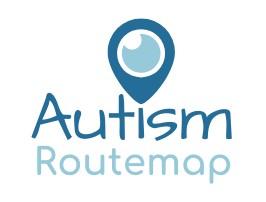5 Simple Ways to Demystify Emotions

Have you ever recognised someone but not been quite sure who they are? That sense of knowing but not knowing at the same time. The person looks familiar but you aren’t sure how or if you know them.
These impressions are like the way we experience our emotions. Especially the softer ones. Strong emotions are easier to detect but there are times when it’s hard to put your finger on what you are actually feeling.
This isn’t surprising when you consider the nature of emotions. Like our thoughts, they are neural messages which are not easily defined or understood. They can linger or be fleeting. They can layer or combine with each other to create different nuances.
Most of us can read internal physical states, like pain, hunger or thirst without difficulty. We don’t easily confuse these signals unless they are very mild.
Autistic children, do however, have more difficulty recognising their internal physical states1. This tends to disappear in adulthood but may explain why the emotional world continues to be elusive later on. Alexithymia (difficulty recognising and describing emotions) is present in approximately 50% of autistic adults.
Being able to detect signals in the body is necessary for knowing if you are hungry, thirsty or tired. Since emotions also impact us at a physical level, the researchers suggest that autistic children do not develop an awareness of the relationship between their bodies and their emotions1. And this underpins the difficulties with emotional understanding.
Emotions may seem insignificant in the bigger scheme of things but actually they are fundamental to our ability to thrive. And as Alexithymia is predictive of depression2 in autistic adults, we cannot ignore this important aspect of people’s lives.
I recently watched a TED talk in which the presenter said that there are 34 000 different emotions. That’s a whole lot of feelings! It might take more than one lifetime to get to grips with that lot - especially if this is not your natural language.
So a helpful way forwards is to take this abstract area and make it more concrete. Accessible even if it is not intuitive to you. Here are a few suggestions:
1. Get to know the emotion families
Rather than working your way through a myriad of different emotions, it’s useful to group them into emotion families as described by Karla McClaren3. This is in keeping with the idea that we have a small set of basic emotions. And grouping our emotions in a mental filing cabinet makes them easier to find when needed.
So by way of example, emotions like annoyance, frustration, irritation and outrage all belong to the anger family.
2. Visualise emotions as colours
Another way to make emotions more concrete is to associate them with colours. There is a strong mental link between colours and emotions.
Our response to colour is not well understood but we do react (even physically) which is why marketing experts pay such close attention to the use of colour in advertising materials.
3. Recognise the different shades of emotions
Emotions have different strengths. When grouping emotions by colour, one of the things I do with clients is learn to recognise the lighter shades (or softer versions) of an emotion. This is important because it enables you to respond proactively before a situation escalates.
So, for example, irritation, indifference and frustration would be pastel shades of anger whereas feeling furious, outraged or appalled would be dark shades.
4. Tune in to your body
Emotions impact us at a physical level. Developing “body-awareness” and tuning in to these physical responses can be a very helpful way of knowing what you are feeling.
Increased heart rate, may for example, be a signal that you are feeling anxious.
5. Know what your behaviours mean
Another clue to your emotions is found in your behaviours. If you suddenly find your language going south (more than usual) or notice that you are excessively impatient or sarcastic, there is a good chance that you are feeling angry.
.......
Our emotional responses are a complex combination of our personality types, past experiences, learned behaviours, physical states and current circumstances. And whilst our perceptions may not be accurate, our emotions are always true.
They are powerful messages that help us to navigate our way through life. Emotions are key to successfully managing relationships and tough situations. They are essential for decision making and our ability to flourish.
And yet, they remain a mystery for so many of us. If as Charles Swindoll said, “Life is 10% what happens to you and 90% how you react to it” then knowing how you react is a worthy goal.
To your emotions!
Linda
Linda is a Speech and Language Therapist with a Masters in Human Communication. She works with neurodivergent people who want to develop their emotional well-being, communication & people skills.
- Nicholson T, Williams D, Carpenter K, Kallitsounaki A. Interoception is Impaired in Children, But Not Adults, with Autism Spectrum Disorder. J Autism Dev Disord. 2019;49(9):3625-3637. doi:10.1007/s10803-019-04079-w
- Bloch C, Burghof L, Lehnhardt FG. et al.Alexithymia traits outweigh autism traits in the explanation of depression in adults with autism. Sci Rep 11, 2258 (2021). https://doi.org/10.1038/s41598-021-81696-5
- McLaren K The Language of Emotions: What Your Feelings are Trying to Tell You 2010 Sounds True Inc
Exciting news!
We are running a FREE webinar on Friday, 2nd July - "Tools & Strategies to Support Neurodivergent People in Managing Stress & Overwhelm".
You'll learn more about your body's stress management system and Katie Jo Gracie will be talking about the use of Essential Oils to support your health and wellness.
Katie Jo is an Actually Autistic wellness advocate with a background in functional nutrition and using essential oils to support people in health and wellness. Click here to register:
https://www.autismroutemap.com/pl/2147504224

